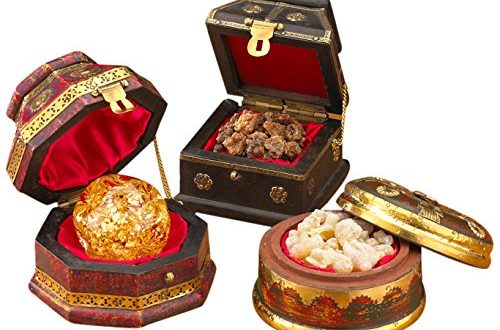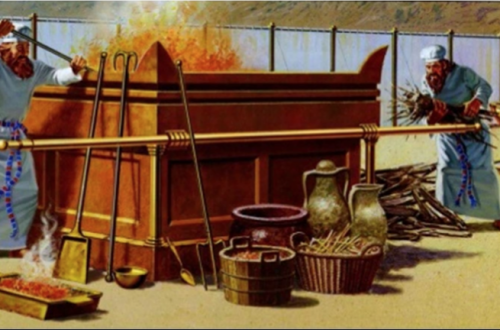Taking a stand for what is right
Exodus 1:9–2:10 is part of the lectionary readings for the twelfth Sunday after Pentecost, which is August 23rd. For the sake of brevity, this study primarily focuses on the narrative in chapter 1.
Genesis reveals how Joseph was sold into slavery by his jealous brothers. Yet, in time, Joseph rose to prominence in Egypt and became the prime minister.
When famine struck Canaan, Joseph’s brothers sought relief in Egypt. While there, they happened upon their long-lost brother and discovered that he was in a position to get them the resources they needed to keep from starving.
Joseph forgave his brothers. And since the famine was continuing to worsen, he invited them—along with their families and his father, Jacob—to live in the land of Goshen (part of the Nile River delta). As a result, Jacob and his family settled in Egypt (Gen 46:26–27).
Exodus 1:1–4 lists the names of Israel’s sons who made the journey. Including Joseph, who was already living in Egypt, Jacob’s clan numbered 70 (v. 5).
By including these names at the beginning of Exodus, Moses signaled the book’s literary connection with Genesis. The narrative of Exodus 1 reveals that throughout the Israelites’ ordeal, they remembered their ancestry and the God whom the patriarchs worshiped.
In the course of time, the first generation of Israelites who relocated to Egypt died (v. 6). Apparently, Jacob’s descendants liked Goshen, for they did not return to Canaan when the famine ended. In fact, they were to remain in Goshen for 430 years (12:40).
During those centuries, God’s people had numerous children and grandchildren. Indeed, their population multiplied to the point where the whole region of Goshen was filled with Israelites (v. 7).
Moses described the prosperity of the Israelites by using the language of the creation account. When God brought humankind into existence, He commanded them to “be fruitful and increase in number” (Gen 1:28). As a reflection of God’s blessing on His people, and in fulfillment of His promise to Abraham (12:1–3), He enabled the Israelites to flourish in Egypt.
While the Israelites were treated well during Joseph’s lifetime, eventually a king came to power who did not remember Joseph (Exod 1:8). Egypt’s ruler also claimed to be ignorant of the Lord. The unfolding narrative indicates that Pharaoh would learn through a painful series of events that the Lord is the one true God.
“Pharaoh” was the official title of the rulers of Egypt. The name itself derived from an Egyptian word meaning “great house.”
Before the name came to be applied to the person of the ruler himself, it was used to refer to the royal palace and the Egyptian court. By the time of Joseph, the term was commonly used to refer to the ruler. The name “pharaoh” (v. 11) was a title, and was not the personal name of the Egyptian rulers.
Exodus 1 introduces the theme of the Israelites’ bondage in Egypt. Despite the continued prosperity of God’s people, they faced stiff opposition from the nation’s inhabitants. Also, despite Pharaoh’s attempts to control and exterminate the Israelites, God’s will and power reigned supreme in preserving them.
Verse 9 specifically mentions that the Israelites became so numerous and strong that they posed a threat to the Egyptians. The census taken at Mount Sinai (Num 1) indicated that there were 603,550 males 20 years of age and older. If these men represented about a quarter of Israel’s population, the Israelites—including younger males, women, and children—might have numbered more than two million at the time of the Exodus.
The king exhorted his court officials to devise a shrewd policy to bring the swelling population of Israelites under control and to keep them enslaved. Otherwise, if the problem remained unchecked, and if a foreign people made war against Egypt, the Israelites might side with Egypt’s enemies, fight against their overlords, and escape from the country (Exod 1:10).
Pharaoh took into account the fact that the Israelites were living near Egypt’s northeast border. This was a strategic place, since it was there that invaders would most likely enter Egypt.
Moreover, if the Israelites left the country, it would wreak economic havoc on the nation. After all, the Israelite slaves were a source of cheap labor. The pharaoh wanted to exploit their potential and at the same time check their growing population.
In accordance with official government policy, the Israelites were grouped into labor gangs and placed under the oversight of slave drivers. These foremen tried to wear down their workers and crush their spirits with hard labor (v. 11).
The Israelites were forced to build Pithom and Rameses for Egypt’s king. These cities were used as supply centers for storing agricultural products, military equipment, and government provisions. Such supplies would be needed if a foreign invader attacked. While the exact location of these cities is unknown, they were most likely in the northern Delta of Egypt.
The pharaoh assumed that his forced labor policy would hold down the Israelites’ population growth. Yet, the outcome was quite different. Despite their mistreatment, the Israelite families grew larger, and they gradually occupied more land.
Consequently, the Egyptians not only feared, but also loathed their slaves’ growing numbers and potential power (v. 12). Believers, of course, recognize the Lord’s sovereignty and majesty at work through every ordeal experienced by His people at the hands of their oppressors.
We also learn from Exodus that God selected the Israelites to portray His power, love, and mercy to the rest of the world. Though they were enslaved by the Egyptians, God had not forgotten His chosen people.
In the process of delivering the Israelites, God would put on a display of power that would send the message around the known world that the one true God is to be loved and feared. Then, the Creator would make a covenant with Israelites—a solemn agreement that, in a sense, renewed the covenant He had made with their ancestor, Abraham.
The role of Exodus in the Old Testament is comparable to the role of the Gospels in the New Testament. Just as the Christian church was founded on the work of the Messiah (as recorded in the Gospels), so the nation of Israel was founded on its deliverance from Egypt (as recorded in Exodus).
The Egyptian overlords were cruel in the way in which they forced the Israelites to work (1:13). Consequently, life for them became filled with anguish and bitterness.
The Israelites’ taskmasters were merciless in coercing them to make bricks and mix mortar for Egyptian building projects and doing farm work in the fields (v. 14). Indeed, every kind of service the Israelites performed was rigorous.
The pharaoh realized that the number of Israelites continued to grow. So, he decided to take a more drastic approach to curb their increase in population.
Most likely, it was through the monarch’s court officials that he instructed Shiphrah and Puah, who were possibly the leaders of a guild of Hebrew midwives (v. 15), to engage in infanticide (the murder of infants). The pair were directed to have all Israelite male newborns murdered, yet to allow the female newborns to live (v. 16).
The “delivery stool” was a pair of stones on which mothers in labor squatted to give birth to their babies. Presumably, the ruler thought the Israelite girls could intermarry with the Egyptians and be assimilated into their pagan society.
The king’s policy failed because the Hebrew midwives feared God more than they feared the nation’s ruler. Consequently, the midwives allowed the male newborns of the Israelites to live (v. 17).
The fear of the Lord is a quality God desires in each of His spiritual children. In this context, fear means reverence that leads to worshipful obedience.
The midwives were engaging in civil disobedience. This can be defined as any deliberate defiance of governmental demands based on moral convictions. From a biblical perspective, civil obedience is the norm of proper behavior for the believer, while civil disobedience is the rare exception (Rom 13:1–7; 1 Pet 2:11–17).
Believers must be willing to experience potential hardship for choosing to defy human commands that clearly violate the moral absolutes of Scripture (Exod 1:15–20; 1 Kings 18:3–4; Dan 3:1–27; 6:1–28; Acts 4:18–20). Ultimately, civil disobedience is based solely on ethical grounds and is to be done in a non-violent, passive manner.
Eventually, Pharaoh learned about the Hebrew midwives’ refusal to obey his decree. So, he summoned them to appear before his court and account for their disobedience.
The monarch questioned what reason the midwives had for sparing the lives of the male Israelite infants (Exod 1:18). In response, the midwives explained that the Hebrew mothers were more stout than their Egyptian counterparts. Specifically, the midwives asserted that the former were so vigorous that their babies were born before the midwives had time to arrive and carry out the king’s orders (v. 19).
It is unclear whether the midwives told the truth or lied to the pharaoh. The second possibility has long been a matter of debate within biblical ethics.
Sometimes people with evil intentions do not deserve to be given the truth they seek, especially because it is certain they would use such information to bring undeserved destruction to others. Such a rationale for withholding the truth, however, should not be taken lightly.
It is rare that one person can accurately judge the motivations of another. When a person’s reasons for seeking information are questionable, it is probably best to withhold comment instead of deliberately lying and pointing that person in the wrong direction.
Despite the ethical uncertainty connected with the explanation the midwives offered, it is clear that God blessed them for their courageous faith. As a result of the midwives’ civil disobedience, the Israelites continued to increase in number and grow more powerful (v. 20).
Apparently, the Hebrew midwives were previously not very fruitful in their childbearing. The Lord honored their faith in Him by enabling them to start families of their own (v. 21).
The pharaoh, however, was not about to give up. He issued an order to cast every newborn male Hebrew into the Nile River. As before, the girls were to be allowed to live (v. 22).
If properly carried out, Pharaoh’s policy would have resulted in the eventual end of the Israelites as a distinct ethnic group. Thankfully, God sovereignly intervened to prevent this from happening.
Key ideas to contemplate
Undoubtedly, the Hebrew midwives understood that the king of Egypt would punish them if they refused to submit to his demand to murder the male Israelite newborns. Yet, despite the possibility of severe consequences, the midwives remained unwavering in their commitment to God.
Christians living in the majority world today are suffering and even dying for their faith. Most of us, however, residing in the global north will never face a deadly threat as a result of standing for our Christian convictions.
Yet, we are often in situations where we must pay some kind of price for our faith when we stand up for what the Bible teaches to be true and right. At times, the price may be as costly as losing a job or alienating a loved one, but more often we may suffer a smirk or a derisive laugh.
When we put our religious beliefs on the line, we must always remain true to our Christian principles, regardless of the consequences. After all, Jesus was resolute in saving us from God’s wrath, despite encountering every kind of hostility and indignation. Therefore, we must have the same kind of attitude as His apostles, who rejoiced “because they had been counted worthy of suffering disgrace” (Acts 5:41) for the Messiah.
It can be difficult to remain unwavering in our faith in the Redeemer when we are alone. We need to remember that one straw can easily be broken, but many straws joined together become nearly unbreakable. That is why God provides us with Christian brothers and sisters to strengthen us when we stand up for what is right in the Lord.
Furthermore, to choose for God in the face of popular opinion requires great courage and conviction. That is why we, like the Hebrew midwives, need the indwelling power of the Spirit.
Also, that is why we, like the Hebrew midwives, need to bath our circumstances in prayer. The Creator, in response to our petitions, can give us the wisdom and discernment we need, especially when enduring the crucible of hardship and deprivation for the cause of Christ.




